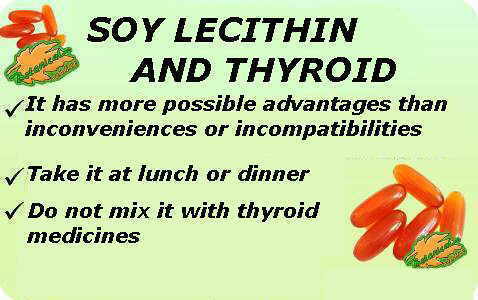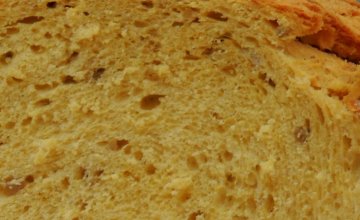Contents
- 1 Is it good to take soy lecithin in hypothyroidism or thyroid disease?
- 1.1 Benefits of soy lecithin for the thyroid
- 1.2 What other benefits does soy lecithin have?
- 1.3 Is soy lecithin goitrogenic?
- 1.4 Is soy lecithin bad for being transgenic?
- 1.5 Soy lecithin with medication for hypothyroidism or hyperthyroidism?
- 1.6 Soy lecithin in case of autoimmune thyroiditis or Hashimoto
- 1.7 How to take soy lecithin for hyperthyroidism or hypothyroidism
Is it good to take soy lecithin in hypothyroidism or thyroid disease?
Benefits of soy lecithin for the thyroid
Soy lecithin is a type of special fat (phospholipid) found in soybeans. In the form of a supplement (granulated or in pearls), it serves to provide choline, inositol and vitamin E, which are components of lecithin that are found in great concentration in the nervous system and in bile.
Generally soy lecithin is not taken to improve the thyroid, but to treat alterations that may appear associated with a thyroid problem. For example, a study published this year 2018, saw that soy lecithin in high doses (1200 mg / day) not only increased vigor, but also decreased hypertension in women aged 40 to 60 years with fatigue.
What other benefits does soy lecithin have?
It is recommended to take this supplement as a remedy to improve memory, decrease the levels of bad cholesterol or LDL, to help the digestion of fats, and for the prevention of stones in the gallbladder.
Despite all these possible benefits and nutritional effects, can taking soy lecithin in case of thyroid problems have any adverse effect?

Is it a myth that soy is bad for the thyroid?
Is soy lecithin goitrogenic?
The goitrogenic soy compounds are found in the protein part of the legume. Soy lecithin, being a fatty extract of the legume, has no goitrogenic properties. Therefore, soy lecithin does not present contraindications to the thyroid.
People with thyroid diseases who wish to increase their levels of good cholesterol, or obtain other benefits of this supplement can take it safely. For more information, consult the contraindications of soy lecithin.
Is soy lecithin bad for being transgenic?
Transgenic soybeans are mainly used to feed animals intended for the production of meat, fish and dairy products. The majority of soybeans for human consumption that is currently marketed, at least in Europe, is not transgenic. In case of doubt, look on the label for the ecological seal or a place where it indicates that it is non-GMO soy (Non- Genetically modified organisms) , because certainly transgenic foods have doubts about their safety.
Soy lecithin with medication for hypothyroidism or hyperthyroidism?
The only precaution that soy lecithin deserves is that all people who take it make sure to isolate it from the medication (be it antithyroid drugs, eutirox or levothyroxine), because these drugs must be taken on an empty stomach, without any other food. Some medicines and products with soy decrease the intestinal absorption of eutirox (levothyroxine sodium).

Main indications of soy lecithin for the thyroid
Soy lecithin in case of autoimmune thyroiditis or Hashimoto
Hashimoto’s thyroiditis is an alteration of the thyroid that usually has a genetic or autoimmune origin and that can give periods of hypothyroidism and times of hyperthyroidism, or only one of the two manifestations.
The position on the consumption of soy lecithin for autoimmune diseases in these cases is similar to the previous cases: it can be taken away from thyroid medications. In addition, it is interesting in these cases to contemplate a diet protocol for autoimmune diseases, and to place oneself in the hands of a specialist in the field.
How to take soy lecithin for hyperthyroidism or hypothyroidism
It is better to let a few hours pass between the medication and the ingestion of soy lecithin.
As thyroid medications are taken in the morning, it is best to take the lecithin at lunch or dinner. In fact, for its digestive properties, soy lecithin is best taken along with meals.
![]() More information on lecithin.
More information on lecithin.








